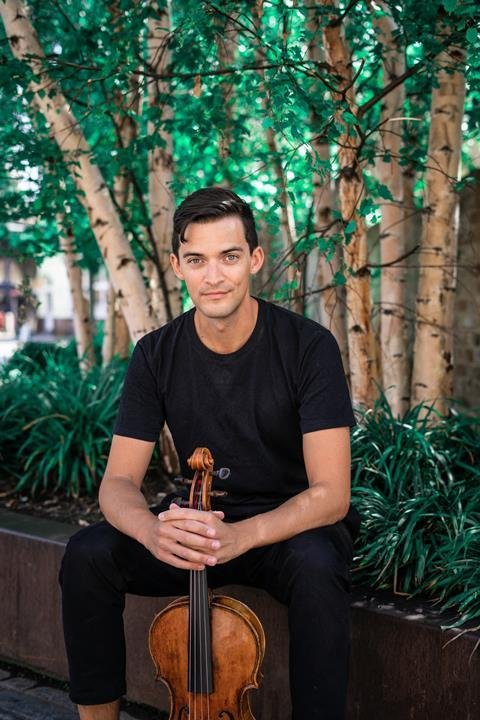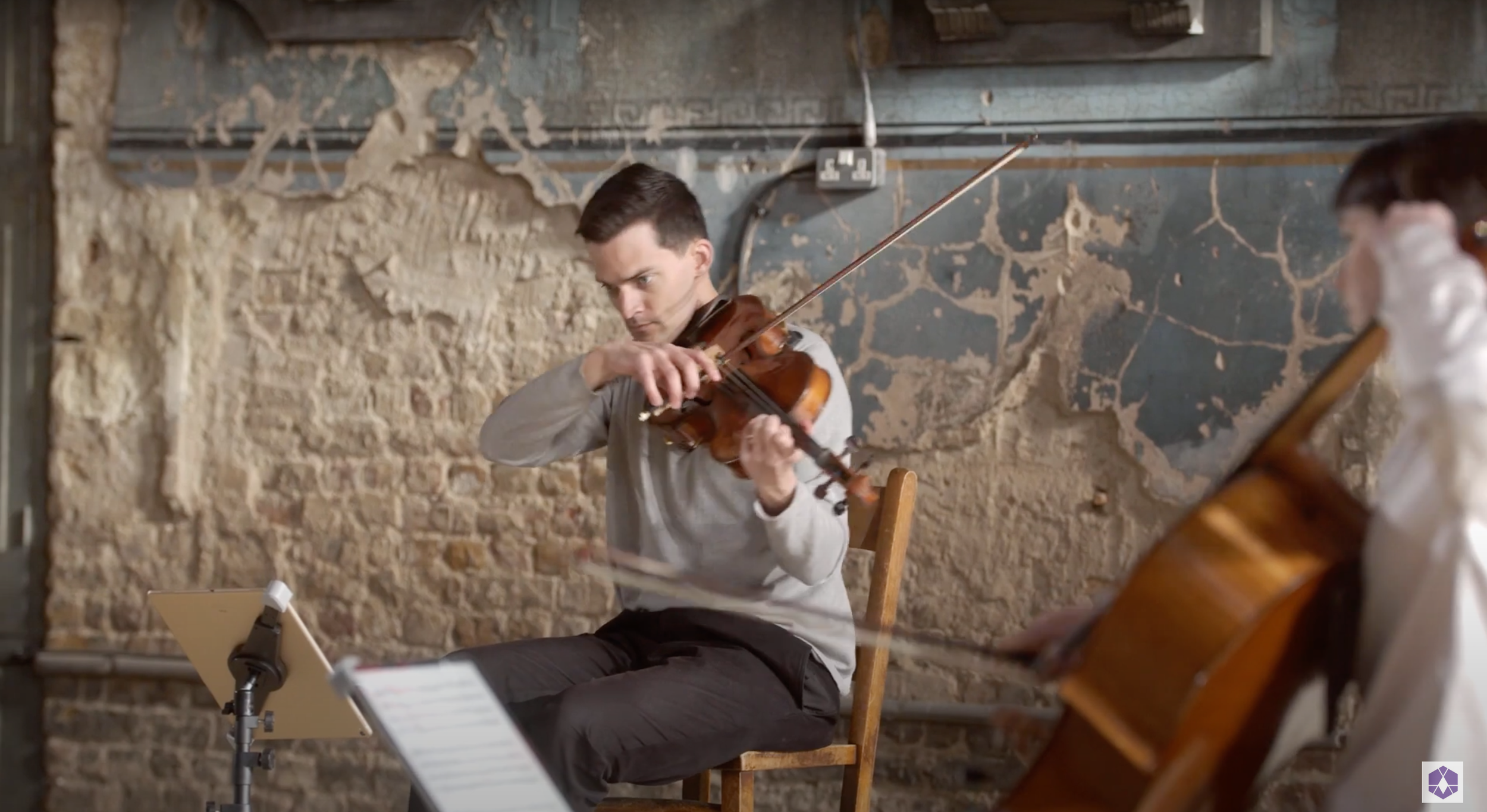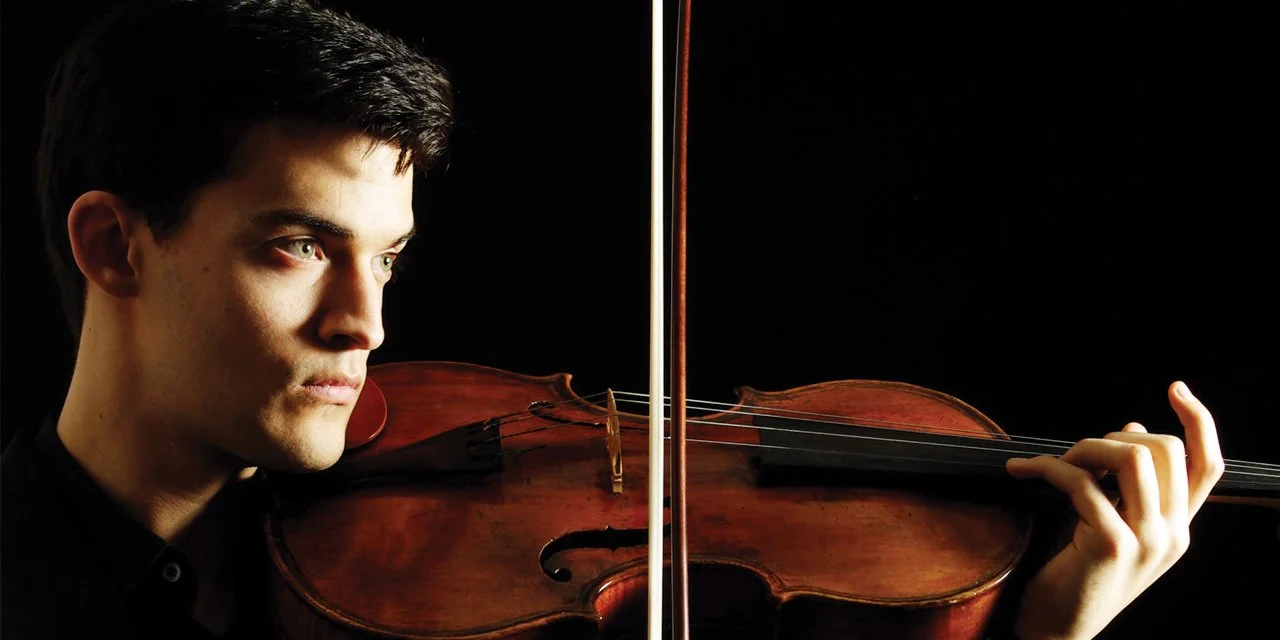
Media
Interviews
Jess Gillam shares music with viola player Stephen Upshaw.
Life Lessons
The Strad
July 2025
My first teacher, Dr. Marilyn Seelman, was a pivotal person for me and changed my worldview of what was possible. She inspired in me what was needed to be done to become a professional musician, particularly when it came to building a solid technical foundation. Something from her that I now tell my students is the idea of moving from technique driven sound, to sound driven technique.
During my time at the New England Conservatory, I learnt from Carol Rodland and then Martha Katz. Carol was incredible when it came to body awareness and finding the most natural and physically fluid way to make the biggest sound. Martha, who had been the violist in the Cleveland Quartet, was a big influence when it came to me ultimately joining a professional quartet, because she really showed me what that lifestyle and role entailed. What we do in a quartet is so intense and uncompromising, that I would recommend to keep it light outside of rehearsals or concerts. You need to be sensitive to others’ needs and know when to give that well-timed joke!
Articles
How to approach contemporary music, by violist Stephen Upshaw
The Strad
25 April 2017
Preparing and performing contemporary music is often viewed as a daunting and stressful task, warranting five colours of marker scribbled frantically over huge pages of music. However, in my experience, once you’ve learnt the notes and investigated the work’s origins, the stresses lessen - and careful study reveals the many different approaches to creative thinking that exist today. The search for new sounds or new ways of using existing sounds, the often extreme expressiveness or even theatricality of the score and the synergy created between composer and performer are just some of the reasons that living with this music is such a joy.
Stephen Upshaw joins Trinity Laban viola faculty
21 July 2022
American violist Stephen Upshaw joins London’s Trinity Laban Conservatoire of Music and Dance as professor of viola.
Upshaw has enjoyed a close relationship with the conservatoire since holding the Trinity Laban Carne Trust Junior Fellowship 2016-17, returning frequently to deliver masterclasses and workshops.
He is a member of the Solem Quartet and London’s Riot Ensemble and has worked closely with many of today’s leading composers, including John Adams, George Benjamin and Errollyn Wallen. He aims to focus his teaching on contemporary repertoire, as a noted interpreter of new music both as a soloist and chamber musician.
Video of the Day: the Solem Quartet play Thomas Adès
23 September 2021
Gramophone
Today's video is a beautifully-filmed performance by the Solem Quartet playing the third movement, 'Days', from Thomas Adès The Four Quarters.
Adès's work forms the heart of the ensemble's debut album – which is newly released on the Orchid Classics label – its four movements surrounded by works from other composers (including Cassandra Miller, Florence Price, and arrangements of Schumann, Bartók and Purcell), all depicting night and day, and the moments in between.
If you'd like to know more, the Solem Quartet's members introduce the recording's fascinating programme in a video below, while beneath that you can explore the album itself via Apple Music.
Meet the Artist – Stephen Upshaw, violist
27 April 2017
Who or what inspired you to take up viola and pursue a career in music?
Growing up, I was often the slightly withdrawn aesthete picking up beautifully coloured leaves on the football pitch rather than playing the game, so in a way I think I was just waiting to find the right creative outlet. The moment came when, aged 10, I decided to play the viola in my school orchestra. It became clear immediately that I had found the medium and instrument that sparked my imagination. Unusually, I never played the violin or indeed any other instrument before the viola – my first read notes of music were in the dreaded alto clef! It seemed that EVERYONE else wanted to play the violin, and my lanky limbs and desire to be different made the sultry viola a natural choice. My parents are not musicians but are great appreciators of music of all styles and so I always loved listening to (and dancing around to) music from an early age so was thrilled to finally be able to make it myself.
Opening Doors
Classical Music Magazine
8 June 2017
Trinity Laban’s Richard Carne Junior Fellowships support artists as they make
the transition to a full-time professional career. Harry White asks 2016/17 fellows
Stephen Upshaw and the Dulcinea Quartet how the scheme helped them
When Technology Makes Music More Accessible
New York Times
3 November 2022
In Britain and Ireland, a series of recent projects show the rich possibilities when disability and neurodiversity are considered in the creative process.
In recent years, increasing attention has been paid, particularly in Britain, to making classical music more accessible. This includes the widespread adoption of what are called relaxed performances in concert halls — where audiences are allowed to make noise — and the creation of professional ensembles for disabled musicians, such as BSO Resound, part of the Bournemouth Symphony Orchestra, and the Paraorchestra, which is based in Bristol, England.
11 October 2023
The Solem Quartet’s violist Stephen Upshaw talks to Harry White about the themes of light, shade and perspective that link the works on the ensemble’s album of 20th-century and contemporary music
Some albums are the result of an artist’s compulsion to record a particular work. Others begin conceptually, with an idea from which the repertoire is drawn. Regardless of the process, there is inevitably symbiosis between concept and repertoire.
In the case of Painted Light, the Solem Quartet’s first album with Delphian, the question of which came first is an interesting one. All under the somewhat nebulous themes of ‘colour, light and shade’, the album testifies to the group’s reputation for diverse programming. Recorded at Willards Farm in Dunsfold, Surrey, it is a potpourri of contemporary commissions, historic 20th-century repertoire, and Joni Mitchell’s seminal song Both Sides Now, arranged by the quartet’s violinist William Newell.
‘As we often do when starting a project, we began exchanging ideas about dream repertoire, and natural threads between the kinds of music began to emerge,’ explains violist Stephen Upshaw. ‘This sort of big-picture thinking often creates sparks that lead to a dynamic collective vision.’ So, as particular works were put forward, a concept developed that began to inform the rest of the album. ‘The concept strongly informed repertoire choices,’ explains Upshaw.
Keeping it fresh and mixing it up - Solem Quartet on combining old and new works
20 July 2021
The Solem Quartet reflect on harnessing creativity to inject new life into canonical works, as well as developing unique new works in collaboration with each other and living composers
As listeners, we draw all sorts of connections between the notes we hear. One beautiful moment of music can set sparks flying in our imagination as we conjure parallels across centuries of art, history, literature and theatre; all seen through the lens of our own human experience. As a quartet we’re always striving for more meaningful ways to connect with audiences and tell the story of what gets those fireworks going in our own brains.














